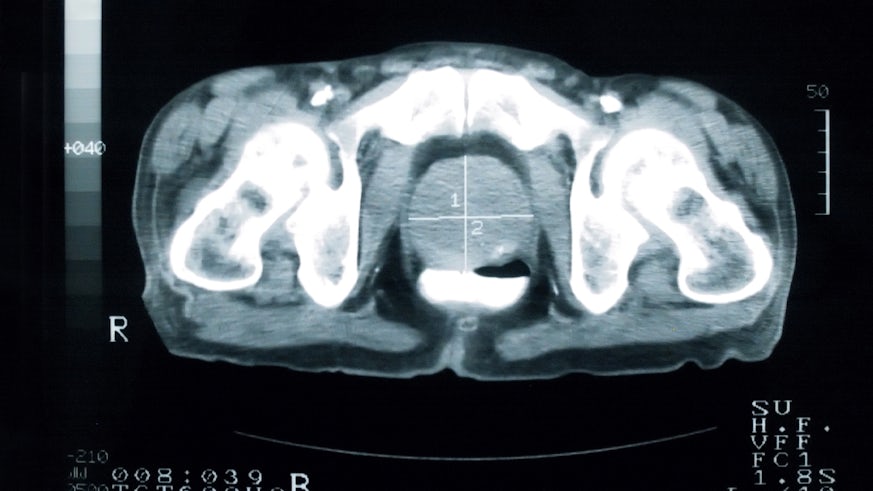Results of major UK trial for prostate cancer treatment
16 September 2016

Active monitoring of prostate cancer is as effective as surgery and radiotherapy, in terms of survival at 10 years, reports the largest study of its kind.
Results show that all three treatments result in similar, and very low, rates of death from prostate cancer. Surgery and radiotherapy reduce the risk of cancer progression over time compared with active monitoring, but cause more unpleasant side-effects.
The ProtecT trial, led by researchers at the Universities of Oxford and Bristol in nine UK
Centres, including Cardiff University, is the first trial to evaluate the effectiveness, cost-effectiveness and acceptability of three major treatment options: active monitoring, surgery (radical prostatectomy) and radiotherapy for men with localised prostate cancer. Researchers at Cardiff University designed and led the radiotherapy arm of the trial.
Between 1999 and 2009, 82,429 men aged 50-69 across the UK were tested and 1,643 diagnosed with localised prostate cancer agreed to be randomised to active monitoring
(545), radical prostatectomy (553) or radical radiotherapy (545). The research team measured mortality rates at 10 years, cancer progression and spread, and the impact of treatments reported by men.
The team found that survival from localised prostate cancer was extremely high, at approximately 99%, irrespective of the treatment assigned.
The rate of cancer progression and spread differed between the groups, with progression occurring in one in five in the active monitoring group, as opposed to less than one in 10 in the surgery and radiotherapy groups. This did not, however, have an impact on the 10 year survival rate of any of the groups.
The study also found that surgery and radiotherapy caused unpleasant side-effects, particularly in the first year after treatment. There was some recovery from side-effects over two to three years, but after six years twice as many men in the surgery group still experienced urine leakage and problems with their sex life, in comparison with those in the active monitoring and radiotherapy groups. Radiotherapy caused more bowel problems than surgery or active monitoring.
Overall quality of life, including anxiety and depression, were not affected by any treatment at any time. Half of the men stayed on active monitoring over the 10-year period and avoided treatment side effects.
The findings of the study will play a key part in the decision to screen for prostate cancer, and are being used as part of a study investigating the effectiveness and cost-effectiveness of prostate-specific antigen (PSA) testing for screening for prostate cancer, the CAP study.
The trial was funded by the National Institute for Health Research (NIHR) and is published in two papers in New England Journal of Medicine:
- Mortality and Clinical Outcomes at 10 years’ Follow-up in the ProtecT Trial
- Patient Reported Outcomes Over Six Years in the ProtecT Prostate Cancer Trial